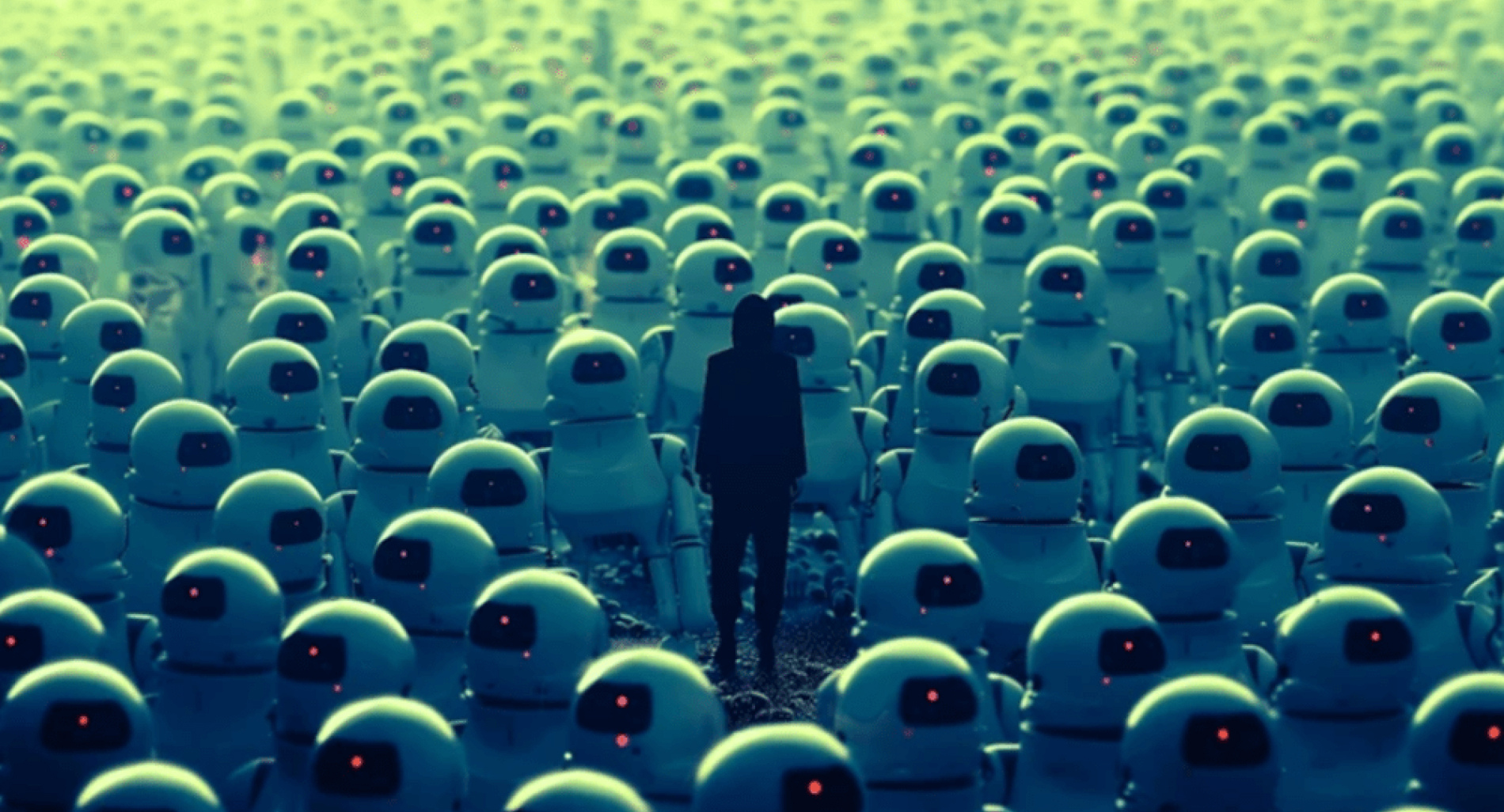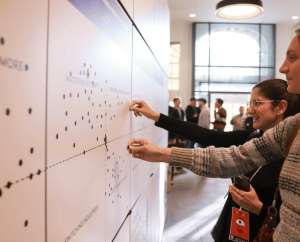The Dead Internet Theory suggests that much of what we see online is churned out by bots, AI, and other automated mischief-makers rather than real humans.
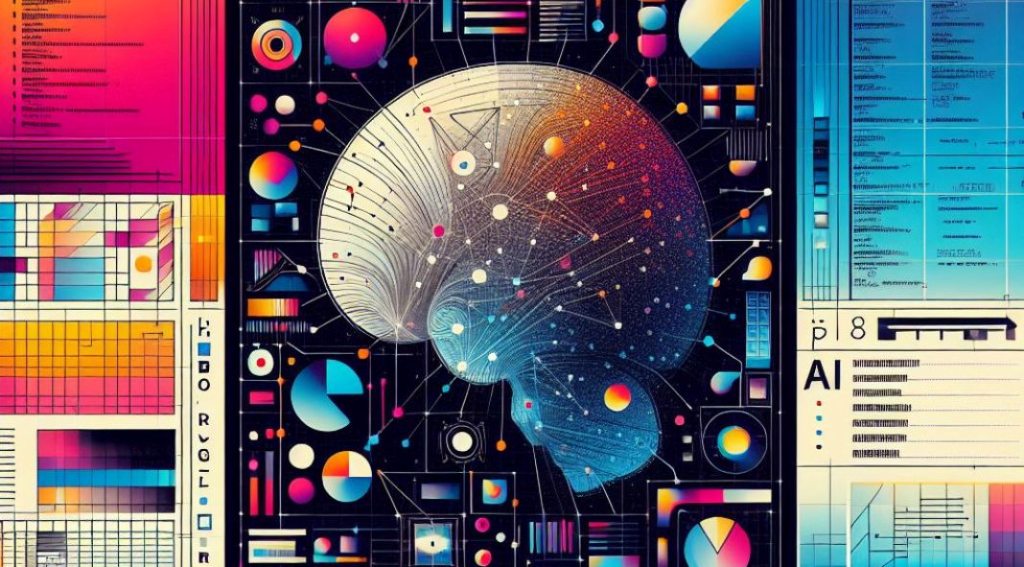
Image sourced from WeAndTheColor.com.
The Rise of the Machines
According to the Dead Internet Theory, the Internet has become a virtual house of mirrors, reflecting back and forth in an endless loop of automated chatter and AI-generated images and posts.
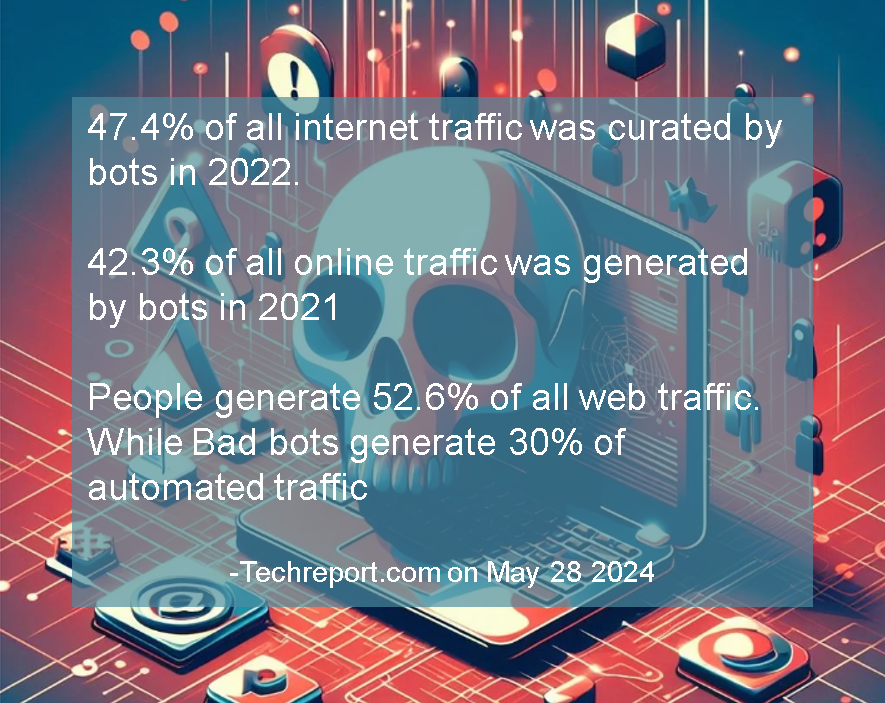
Digital traffic of humans vs. bots. Image sourced from Digital Information World -Algen. Facts sourced from Techreport.com, May 28, 2024.
Believers pinpoint 2016 as the year the internet kicked the bucket—and bots, AI, and other digital magicians overtook the crafting of online content. The supposed agenda? To drown out authentic human activity and nudge us subtly toward certain behaviors. Imagine a digital Pied Piper but with algorithms instead of a flute. A parallel digital universe; where holiday videos and ‘Living my Best Life’ posts aren’t shared by your peers or idols, but by sophisticated AI and bots.
Satirical or Sinister?
Bots commenting on AI-generated posts, which are then shared by another bot, to then be commented on by another AI-curated account….an endless loop of fake profiles commenting on other fake content, is a little funny. Especially when shrimp, fried chicken, and other beloved viral trends are generated with a hot Jesus.
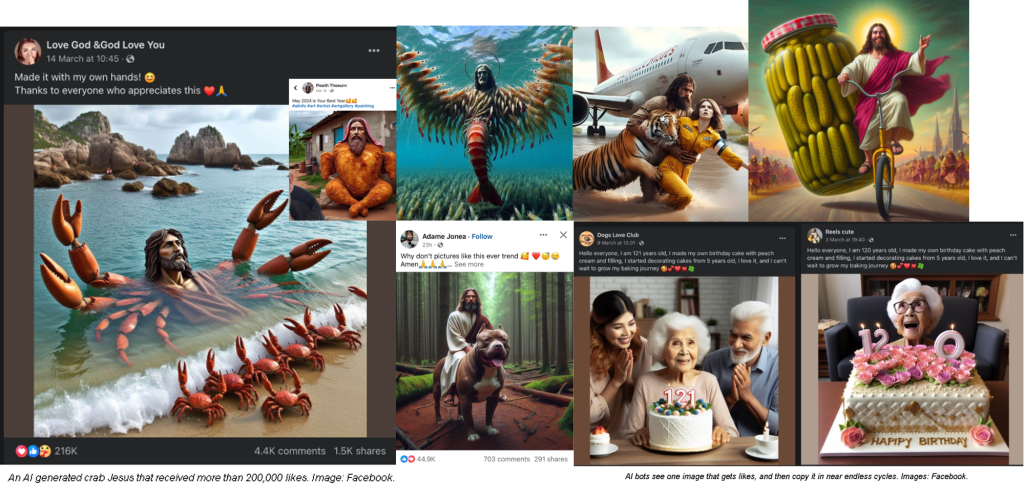
“Bots are going to be upvoting and downvoting synthetic content and we get these interesting, strange, odd feedback loops that take us off in weird directions.” – Toby Walsh, Professor at the University of New South Wales and AI expert. Source: Facebook, TikTok, and Pedestrian.TV.
But bots inflating engagement metrics and manipulating conversations – maybe not so humorous.
The original Dead Internet Theory suggested that the purpose of this automation was to influence public consumerism, by giving the illusion of popularity of certain products.
However, now some believe in a more sinister and grander manipulation scheme. Suggesting that these digital overlords are not just after your clicks and purchases. But it has menacingly escalated to government agencies pulling strings to influence voters and shape public opinions, ideas, and social norms. It’s a sci-fi thriller theory, with memes and targeted ads.
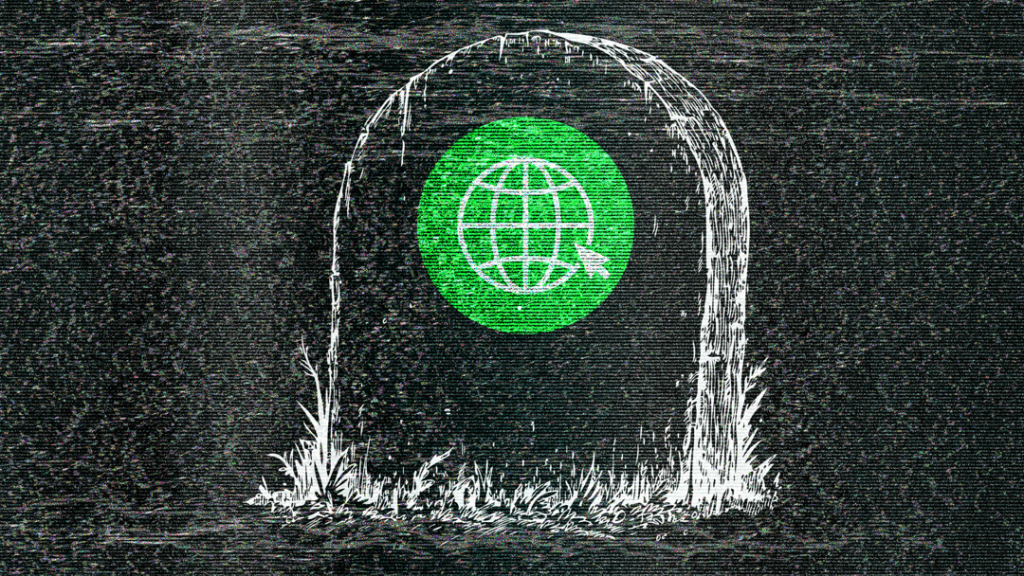
Image is sourced from FastCompany.com
Manipulation or Mischief?
Critics of the Dead Internet Theory argue that while bots and AI do play a role in online content creation and dissemination, the scale proposed is exaggerated. Highlighting that human interaction is still prevalent online, and many trends and viral phenomena are organically driven by real people. The skeptics also argue that advancements in AI and content generation are often transparent and not as nefarious as the theory suggests.
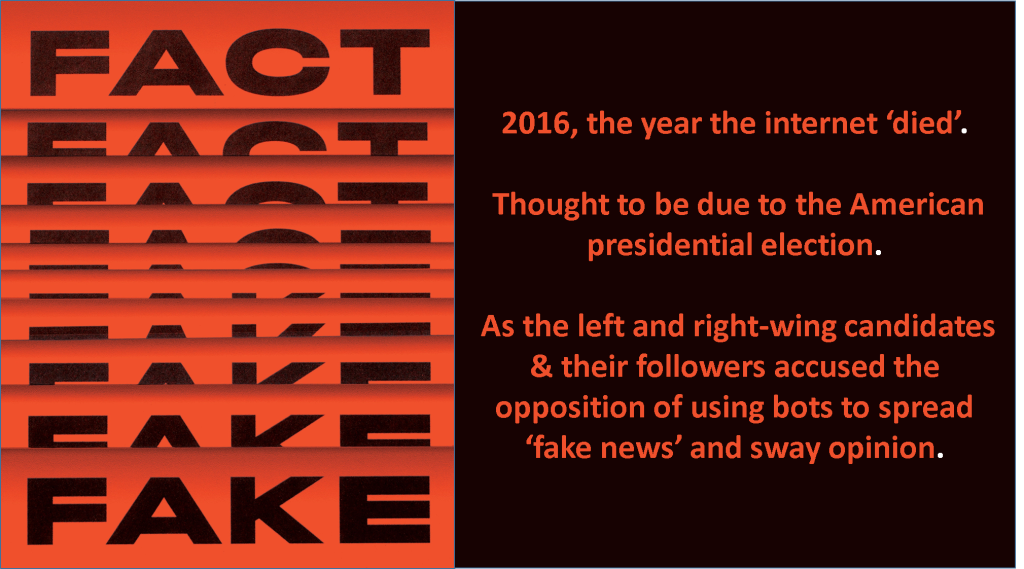
2016, the year the internet died. Image sourced from Pinterest and facts from em360tech.com.
The Essence
In essence, the Dead Internet Theory reflects concern about the authenticity and trustworthiness of online content and interactions in an age where AI and automation are increasing in sophistication. Though the extent and impact are widely debated, I believe it doesn’t hurt to hone a human instinct -be critical especially when you are feeling nudged in any direction.
Humans and Bots alike can be mischievous and manipulative. So reflect and have-a-think, before making an important decision.

